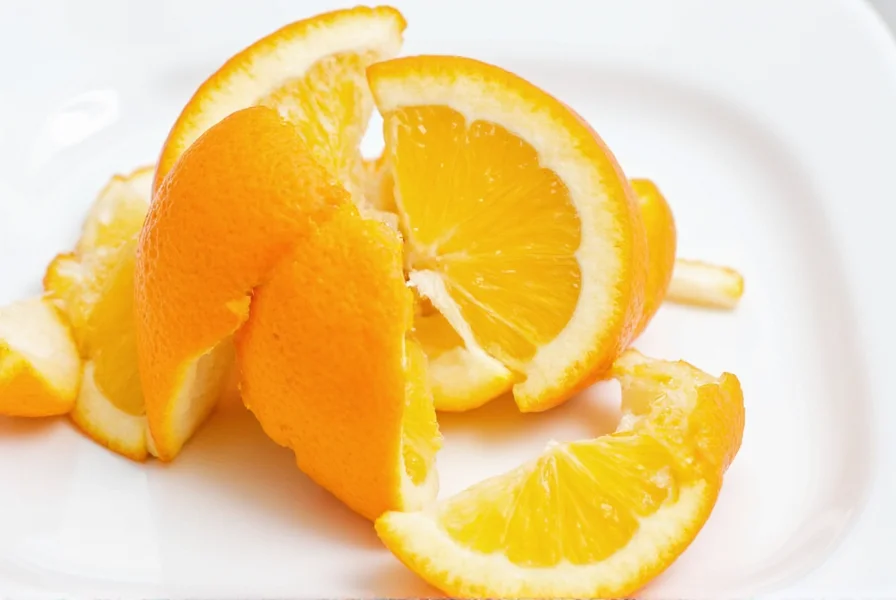Table of Contents
Introduction to Orange Zest
Spices are the heart of any great dish, and one of the most versatile and aromatic ingredients in your spice rack is orange zest. If you've ever wondered what makes a dish pop with flavor, or how to elevate your cooking with a hint of citrus, then this article is for you. Whether you're a seasoned chef or just starting out, understanding the role of orange zest can open up a whole new world of taste.
What is Orange Zest?
Orange zest is the colored outer layer of an orange, excluding the white pith beneath it. This thin, fragrant layer contains concentrated oils that give oranges their distinct aroma and flavor. Unlike the juice, which is watery and sweet, the zest holds a more complex and intense taste profile, making it a powerful ingredient in both sweet and savory dishes.
When you think about using orange zest, you might imagine it as a topping for cakes or cookies, but its applications go far beyond that. It's commonly used in baking, cocktails, marinades, and even some traditional spice blends around the world. The key is to use it in moderation, as too much can overpower a dish.
How to Use Orange Zest in Cooking
Now that you understand what orange zest is, let's dive into how to use it effectively. Here's a quick list of practical tips:
- Baking: Add grated orange zest to cakes, cookies, and breads for a bright, zesty flavor.
- Cocktails: Use it as a garnish or mix it into syrups for a refreshing twist on classic drinks.
- Marinades: Combine it with olive oil, garlic, and herbs to create a flavorful base for meats or vegetables.
- Flavor Enhancer: Sprinkle a bit over roasted vegetables or rice for a burst of citrusy brightness.
- Homemade Liqueurs: Infuse it into vodka or rum for a homemade orange liqueur like Cointreau or Triple Sec.
One of the best ways to get the most out of orange zest is to grate it directly from the fruit. You can use a fine grater, microplane, or even a vegetable peeler. Just be sure to avoid the white pith underneath, as it can add bitterness. For the freshest results, always use organic oranges, as non-organic ones may have wax or chemical residues.
The Benefits of Using Orange Zest
Orange zest isn't just a flavor booster—it also offers several health benefits. Here's why you should consider incorporating it into your diet:
- Natural Antioxidants: The oils in orange zest contain compounds like limonene, which have antioxidant properties and may support overall health.
- Digestive Aid: Some studies suggest that orange zest extract can help improve digestion and reduce bloating.
- Immune Support: High in vitamin C, orange zest can help boost your immune system and protect against colds and infections.
- Aromatherapy: The scent of orange zest can be calming and uplifting, making it a great addition to essential oil diffusers or natural air fresheners.

Additionally, using orange zest is a sustainable way to reduce food waste. Instead of tossing out the peel after juicing an orange, you can save it for future recipes. This not only saves money but also helps the environment by minimizing waste.
Buying Guide for Orange Zest
| Type | Best for | Features | Use Cases | Target Audience | Suitable Occasions |
|---|---|---|---|---|---|
| Fresh Orange Zest | Bakers, chefs, and those who want maximum flavor and freshness | Naturally aromatic, easy to grate, and ideal for use in small quantities | Baking, cocktails, and homemade syrups | Home cooks and professional bakers | Everyday cooking, holiday baking, and special events |
| Dried Orange Peel | Those who want convenience and long shelf life | Available in powder or flake form, easy to store, and often used in spice blends | Flavoring baked goods, adding depth to sauces, and seasoning meats | Busy professionals and home cooks looking for quick solutions | Weekday meals, snacks, and meal prep |
| Orange Essential Oil | Aromatherapy, natural cleaning, and DIY projects | Highly concentrated, must be diluted before use, and offers a strong citrus scent | Diffusing in the home, making natural cleaners, and adding fragrance to lotions or soaps | Wellness enthusiasts and eco-conscious consumers | Daily aromatherapy sessions, natural household cleaning, and personal care routines |
When purchasing dried orange peel, look for products that are unsweetened and free from additives. For essential oils, ensure they are pure and suitable for the intended use—some are for internal use, while others are strictly for external application.
Frequently Asked Questions About Orange Zest
What is the difference between orange peel and orange zest?
Orange peel refers to the entire outer layer of the orange, including both the colored part (zest) and the white pith beneath it. Orange zest specifically refers to just the colored outer layer without the bitter white pith. When recipes call for "orange zest" in cooking, they typically mean the zest only.
How do I properly zest an orange?
To zest an orange properly, use a microplane grater, fine grater, or zester. Hold the orange firmly and gently scrape the tool across the surface to remove only the colored part, avoiding the white pith which is bitter. Rotate the orange as you work to get even zest from all sides.
Can I use dried orange peel instead of fresh zest?
Yes, you can substitute dried orange peel for fresh zest, but use about one-third the amount since dried peel is more concentrated. As a general rule, 1 teaspoon of fresh zest equals about 1/3 teaspoon of dried zest. Dried orange peel works well in baking and slow-cooked dishes where moisture isn't critical.
How should I store leftover orange zest?
To store fresh orange zest, place it in an airtight container in the refrigerator for up to 3 days. For longer storage, freeze the zest in ice cube trays with a bit of water or oil, then transfer the frozen cubes to a freezer bag. Dried orange peel should be stored in an airtight container in a cool, dark place for up to 6 months.
Is orange zest safe to eat?
Yes, orange zest is safe to eat and packed with nutrients. However, it's important to thoroughly wash oranges before zesting to remove any pesticides or wax. For best results, use organic oranges when you plan to use the zest in your cooking. Non-organic oranges may have chemical residues that aren't safe to consume.
Conclusion
Orange zest is more than just a byproduct of juicing an orange; it's a powerful, aromatic spice that can transform your cooking and bring a refreshing twist to your meals. Whether you're using it in baking, cocktails, or as a natural remedy, its versatility and health benefits make it a must-have in any kitchen.
By understanding how to use and buy orange zest, you can unlock new flavors and enhance your culinary experience. So next time you're slicing into an orange, remember that the peel has more to offer than just a colorful garnish—it's a secret weapon for flavor, health, and sustainability.

The next time you reach for a spice, consider giving orange zest a try. With its vibrant aroma and bold flavor, it's a simple yet impactful addition to your spice collection. And remember, the key to mastering any spice lies in experimentation and appreciation for its unique qualities. Happy cooking!











 浙公网安备
33010002000092号
浙公网安备
33010002000092号 浙B2-20120091-4
浙B2-20120091-4